December 19, 2023, 4:33 pm | Read time: 6 minutes
If you want to improve your sleep habits, consider adding houseplants to your bedroom. Not only do they enhance the room’s appearance, but they can also positively affect the indoor climate.
During sleep, our bodies recover–bones, internal organs, and muscles. Various internal and external factors can affect sleep quality. This includes how stressed we are, but also the oxygen content of the air can be crucial for a restful night. That’s why it’s important to ventilate the room before going to bed. Additionally, it’s worth placing various plants in the bedroom. These also improve the air.
Overview
Do Plants in the Bedroom Take Away Oxygen?
The myth that houseplants in the bedroom could steal oxygen has persisted for years. The background: Plants do not perform photosynthesis at night because they need daylight for it, so they do not produce oxygen. Instead, they absorb oxygen at night. One might think that this oxygen could be lacking for humans. However, this concern is unfounded, as the amount of oxygen absorbed by plants is extremely small. You would need a large number of plants in the bedroom before you “run out of air.”
Conversely, the myth persists that plants produce oxygen at night. This is not entirely correct, but there are plants that release oxygen at night. These include succulents, for example.
Also interesting: 6 Mistakes to Avoid When Setting Up Your Bedroom
Why Are Plants in the Bedroom Useful?
There are many good reasons to place plants in the bedroom. They are not only decorative and contribute to a more pleasant atmosphere, which can also help you fall asleep better, but they also have other benefits. For one, plants can purify the air and positively affect the room climate. Some even specifically filter pollutants from the air, such as the spider plant, rubber plant, or pothos.
Additionally, plants help maintain balanced humidity in the room. Some plants with particularly large leaves have the ability to release moisture into the air. This includes the Boston fern, for example. Dry indoor air is especially a problem in winter when the heating is on during the day. Plants can help counteract this. However, plants do not replace regular ventilation–even in winter.
9 Plants Suitable for the Bedroom
Some plants are particularly suited for the bedroom due to their air-improving properties. Find out which ones in the overview:
1. Jade Plant
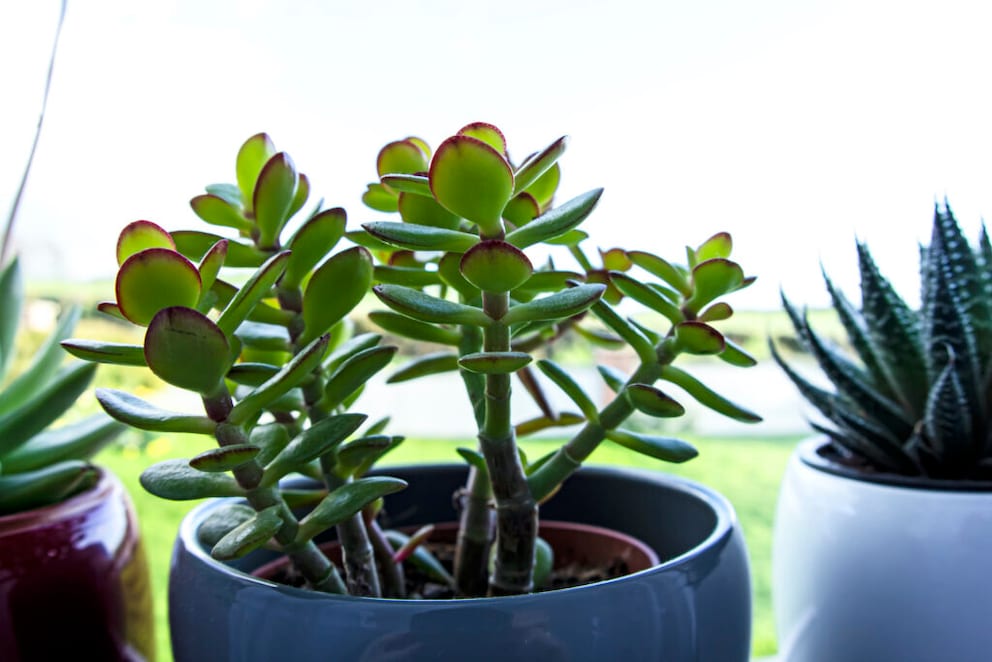
The Jade Plant (Crassula ovata) belongs to the succulent family. Like all plants in this family, the jade plant is ideal for the bedroom. Since they originate from hot desert regions, succulents are designed to lose as little water as possible during the day. They store this in their thick leaves–hence the name. The oxygen produced during photosynthesis cannot escape. At night, however, the jade plant absorbs CO2 from the air and releases the oxygen stored during the day.
Also interesting: How Bedrooms Look Different in Other Countries
2. Spider Plant
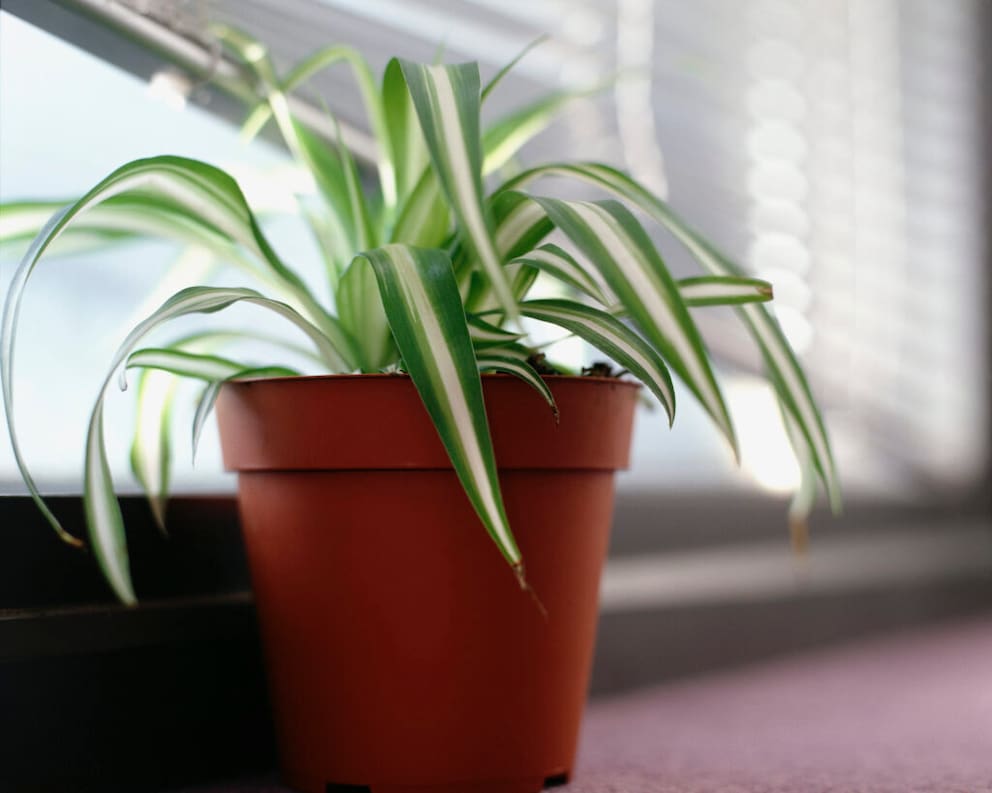
The Spider Plant (Chlorophytum comosum) is both decorative and easy to care for–ideal for the bedroom. According to a NASA study, it can also filter pollutants from the air, such as toxic formaldehyde. This makes the houseplant conducive to restful sleep.
Also interesting: 6 Things to Banish from the Bedroom
3. Snake Plant
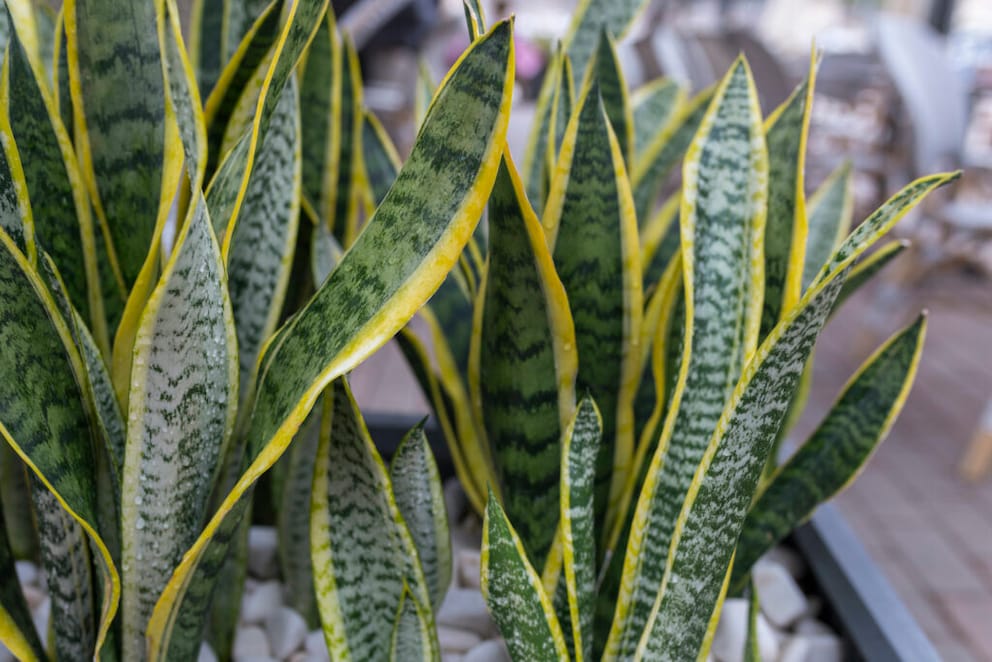
The Snake Plant (Sansevieria) is a suitable plant for the bedroom for several reasons. For one, it doesn’t need much light to grow, which is advantageous in the bedroom. Additionally, like the spider plant, it can purify the air of pollutants. It is even said to help with headaches. Lastly, it is also very decorative. However, dust can accumulate on its large leaves over time, so they should be wiped occasionally.
4. Ivy
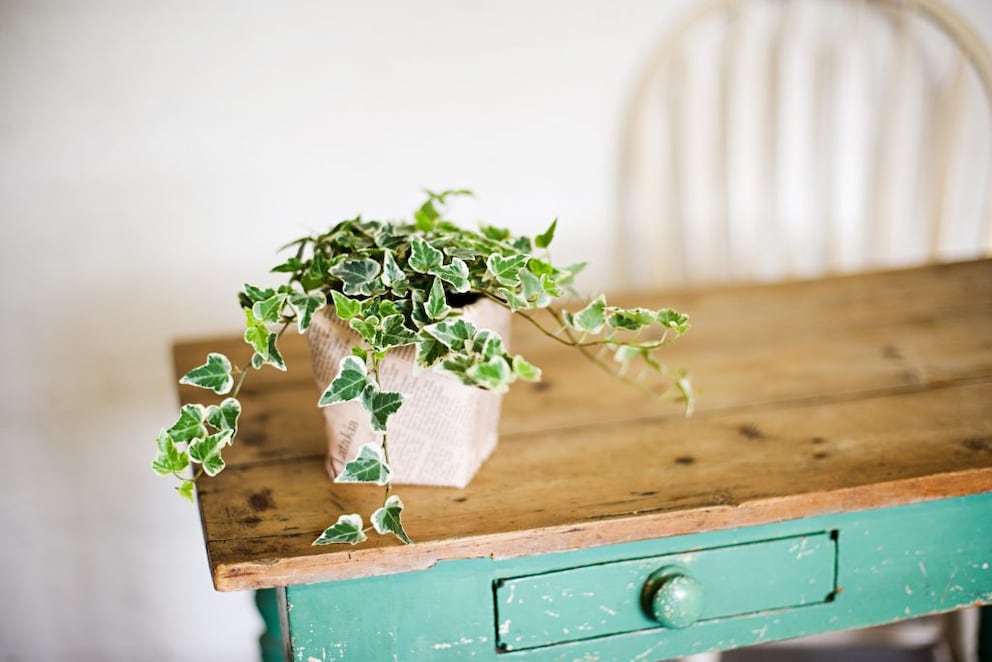
Common Ivy (Hedera helix) is very suitable as a plant for the bedroom because it doesn’t need much light and also has air-purifying properties. It is said to filter up to 94 percent of all pollutants from the air, including mold spores. Additionally, ivy doesn’t require much care. Since it can tolerate high humidity, it can also be placed in the bathroom. Direct sunlight should be avoided with ivy. Important: Ivy is toxic–contact with the skin can cause inflammation.
Related: 7 Plants Perfect for the Bathroom
5. Pothos
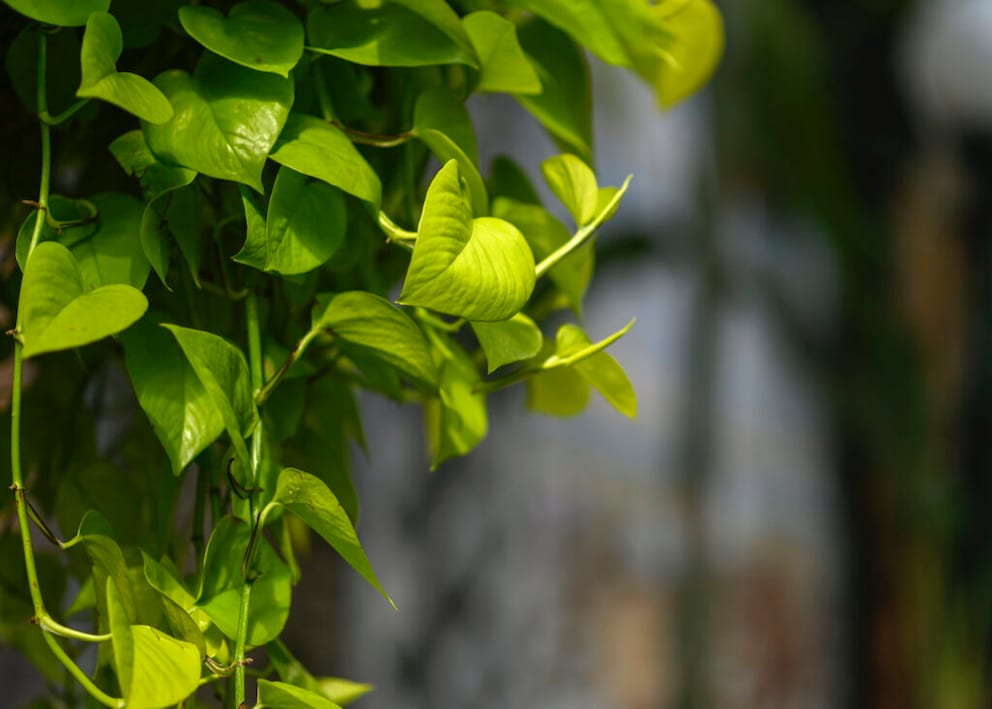
Whether on the windowsill or as a hanging plant, the Pothos (Epipremnum aureum) requires little care and is always an eye-catcher. It also purifies the air in the bedroom and releases oxygen at night. It also thrives in the bathroom, as it can tolerate higher humidity. A room temperature of 68 degrees Fahrenheit is ideal; it should not be colder than 60 degrees. But beware: The leaves of the pothos are toxic, so keep them away from children and pets.
6. Boston Fern
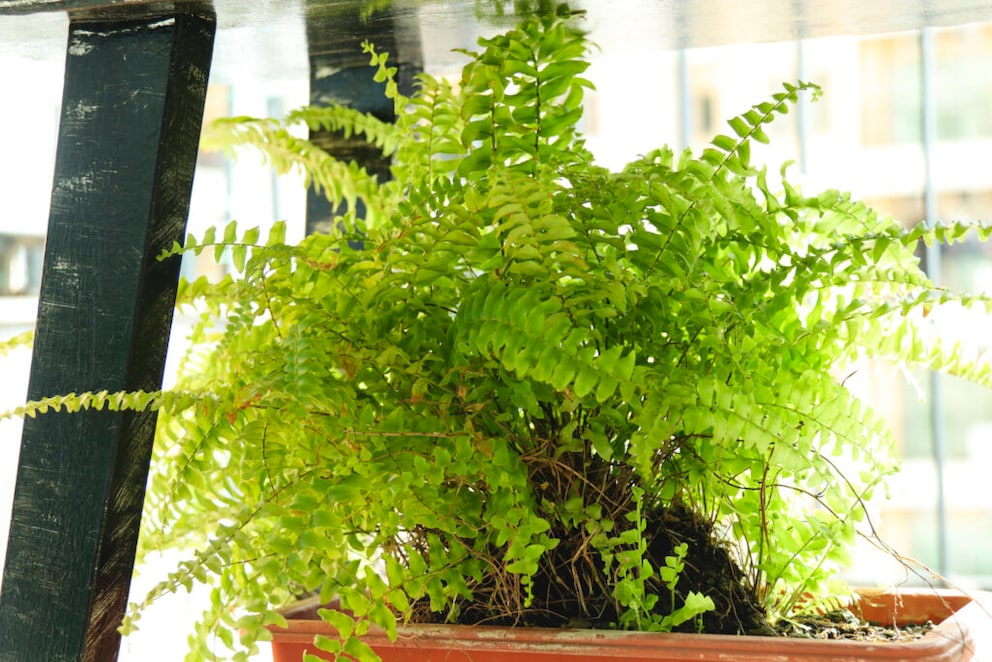
Ferns are generally known for coping well with darker locations. This also applies to the Boston fern (Nephrolepis). It is also said to have air-purifying properties, making it a good choice for the bedroom. When watering, don’t be too sparing; the Boston fern prefers it moist. Therefore, it is suitable for both the bedroom and the bathroom.
Also interesting: 6 Alternatives to the Classic Nightstand in the Bedroom
7. Aloe Vera
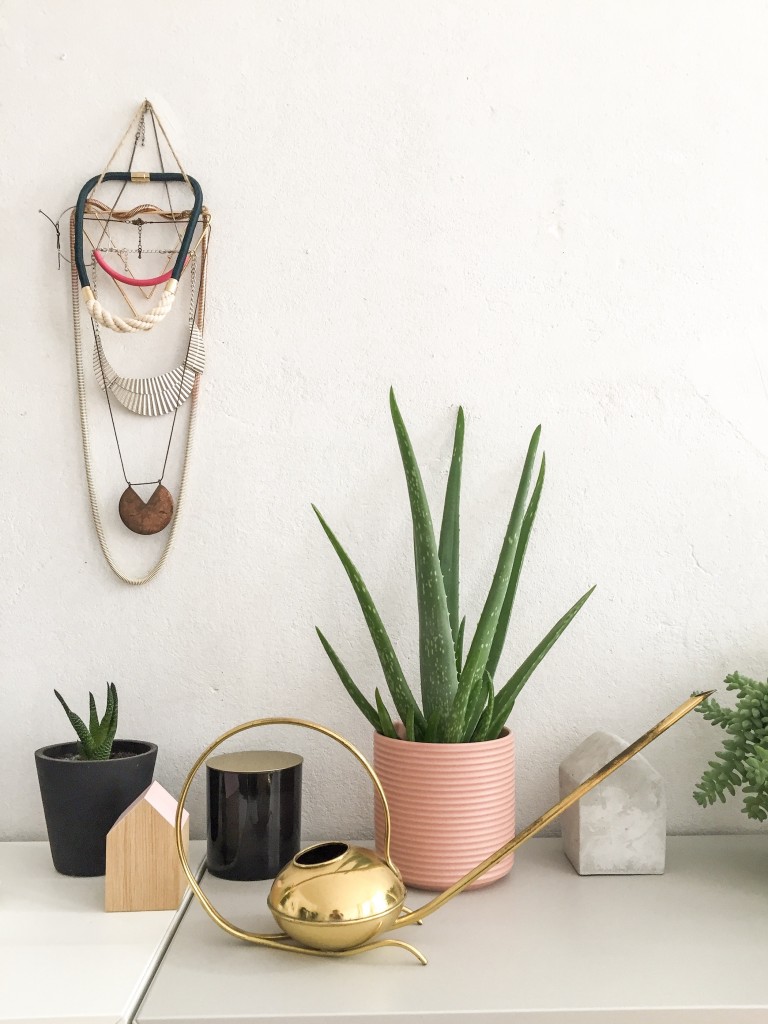
The Aloe Vera is one of the most popular houseplants in general–and for good reason: It is easy to care for, decorative, and also has healing properties. The gel from its fleshy leaves can be applied directly to dry skin. Additionally, the plant can lower humidity and release oxygen, which is beneficial in the bedroom.
8. Peace Lily
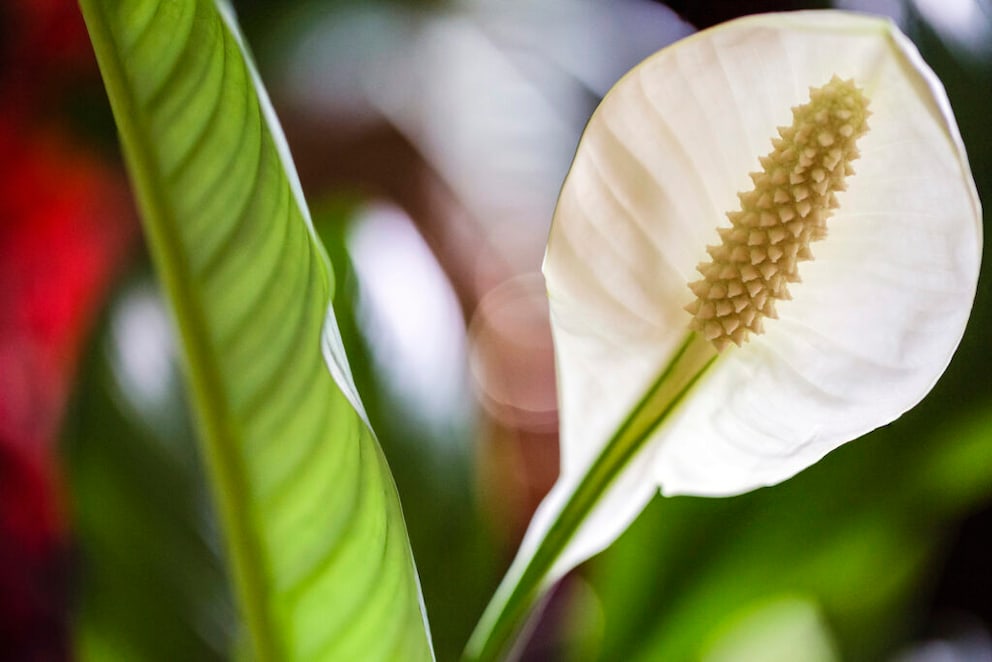
The Peace Lily (Spathiphyllum) is a very grateful houseplant–not just in the bedroom. It is robust and quite undemanding. Additionally, it is said to have air-purifying properties, as it can filter toxins like formaldehyde from the air. Moreover, the peace lily can release moisture, which can help with dry mucous membranes at night.
9. Parlor Palm
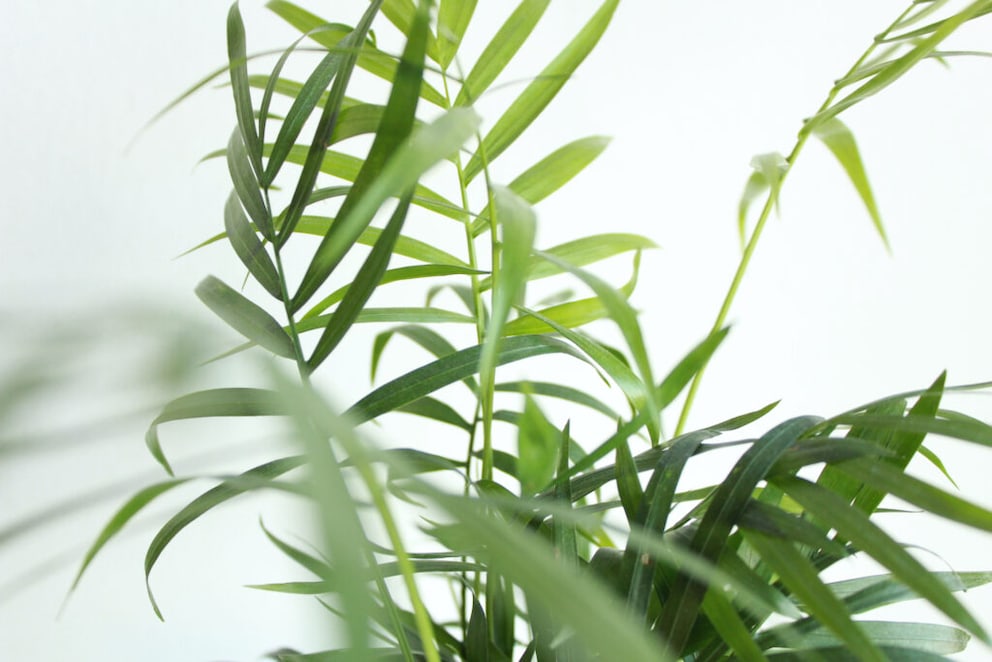
The Parlor Palm (Chamaedorea elegans) originates from Mexico and is one of the most popular houseplants. It is also suitable for plant beginners, as it quickly forgives care mistakes. It brings a tropical flair to the bedroom and also improves air quality by absorbing pollutants. Direct sunlight should be avoided with the parlor palm.
Also interesting: Setting Up Your First Apartment–Tips from an Interior Designer

6 Plants That Help Against Mold in the Bathroom

5 air-purifying plants for the home

5 Tips for a Sustainably Designed Bedroom
Which Plants Should Be Avoided in the Bedroom?
Not all houseplants are suitable for the bedroom. For example, plants with strong scents can reduce sleep quality and may even cause headaches. These include jasmine or lavender. Allergy sufferers should be especially cautious. Additionally, sick plants should not be placed in the bedroom–they can cause allergic reactions. This also includes those with mold on the potting soil.
